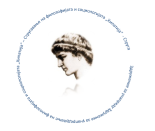TOPIC 3 ,,Have you lived today?’’ CODE 985
I breathe, my heart beats. This means that I exist today. But will I exist tomorrow, or the day after? The real fear should not be of dying tomorrow, but of not living today and how to live today. Therefore we have to understand what life is. As Soren Kierkegaard “Life can only be understood backwards; but it must be lived forwards.” we can consider the life as a straight line. If the existence is a straight line of progress going forwards, living gives the shape to this line of progress analogically. We can observe this line only after it is denoted, the moment ago, yesterday, or when we were born. I have changed since yesterday. I have one more experience of typing this, and what is more thinking about this. It all counts. If I pass, I will have a feeling of pride, happiness and hope involuntary. On the other side friends of mine will not go further filled with eager for success and lack of satisfaction. On the other hand, I might not pass. I might not have the same feelings, but I cannot help feeling at all. Whatever I do I cause change, I live, and what is more important. I do not live just for myself, I live for others too. But how do I live?
GoodLiving for others sometimes falls in shadow, in contrast to living for yourself which always ends up qualified as good. But can we reach living that is good for us and for the others in particular moral borders? This is thousands of years old question. Aristotle explained ethics as moral rules that control human’s acting. And this balance of living morally excellent life for both positions can be achieved by reaching your own virtue.
Virtue is excellent character, bravery and control of bodily appetites. Excellent character leads to excellent actions. Soldiers are the best example of position with a predispositions for virtue. They have a character built from prudence, justice and courage, main ingredients of the virtue. They show the prudence with every action they decide to take with the practical wisdom, Phronesis from experience applied on the theoretical wisdom, Sophia while creating strategies or there is justice shown with mercy and stiffness by a good judgment, common sense and advisability, and all of these are possible because of the courage they have.
With virtue we are capable of achieving the apex of good living called eudaimonia, well divinity. This human’s flourishing means thinking good and acting excellently. To accomplish this you need to merge the sophia and phronesis, the theoretical and the practical wisdom. Example for practical wisdom is leaders. Leaders have the power of will of acting according to their opinion due to a practical experience regarding the given situation. On the other side sometimes we fail to be led by our will. For instance, students decide not to complain about the results, because they might be punished with the mark in the end of the term and they know this from personal experience which represents the practical wisdom. But yet, we may include the term akarsia. For example, some people highlight akarsia when they cannot follow their own decisions. Suddenly, students find their selves complaining.
Our virtue can be established, because in the end it is all a system of habits, and these habits have to be practiced constantly. It can be considered as a skill. Just like playing an instrument. The more you practice, the better you become. And a vital role has the way of habiting. The habiting must be merit. Because the balance is essential. In life, despite the possibility of life being a consequence of engagement and commitment as nihilism imputeswe don’t give up trying to give it best real shape of perfect living. Kalosmeros is the nearest step to aexcellent living.Even if we reach excellent living, we can never reach perfection in every point. Simply, we cannot satisfy everybody. If a king wants to gain power and fortune and wants to protect his kingdom and people. He will have to win the battle no matter how many humans will be killed from the other kingdom and how many families will be left in pain. It has two sides. But there is the priority of satisfaction and pleasure leading his decisions such as personal gain of power and fame. He also has to control his appetites and be brave, he has to overwhelm his greediness, because moderation is the closest to perfection or good living.
As far as the main difference between living for ourselves and living for people around us is the priority and purpose we set ourselves in the center. Our primary tendency is to satisfy personal needs and desires. We buy ourselves new clothes because it makes us happy. A mother also buys clothes to her children and that makes them happy. But what is the subconscious purpose of this act? Why the mother wants her child to be happy? Because this makes her happy. Again, it all brings the arrow of satisfaction to the center of ourselves.
Our actions interwave with other’s. While I give shape to the line of my own progress and affect the line of progress of others, I live. Schopenhauer said well ,, life is a constant process of dying”, so and even my death will be an act of living more than my breathing. It will alter the lives of my family and friends, their life will not be the same without me. Others will find it favorable for my job position. Actually, the death is the only act of bringing a change that relates with living only for others not for ourselves. Even if I keep breathing and provide this essay to my professor or if I die, I will have lived today anyway.



